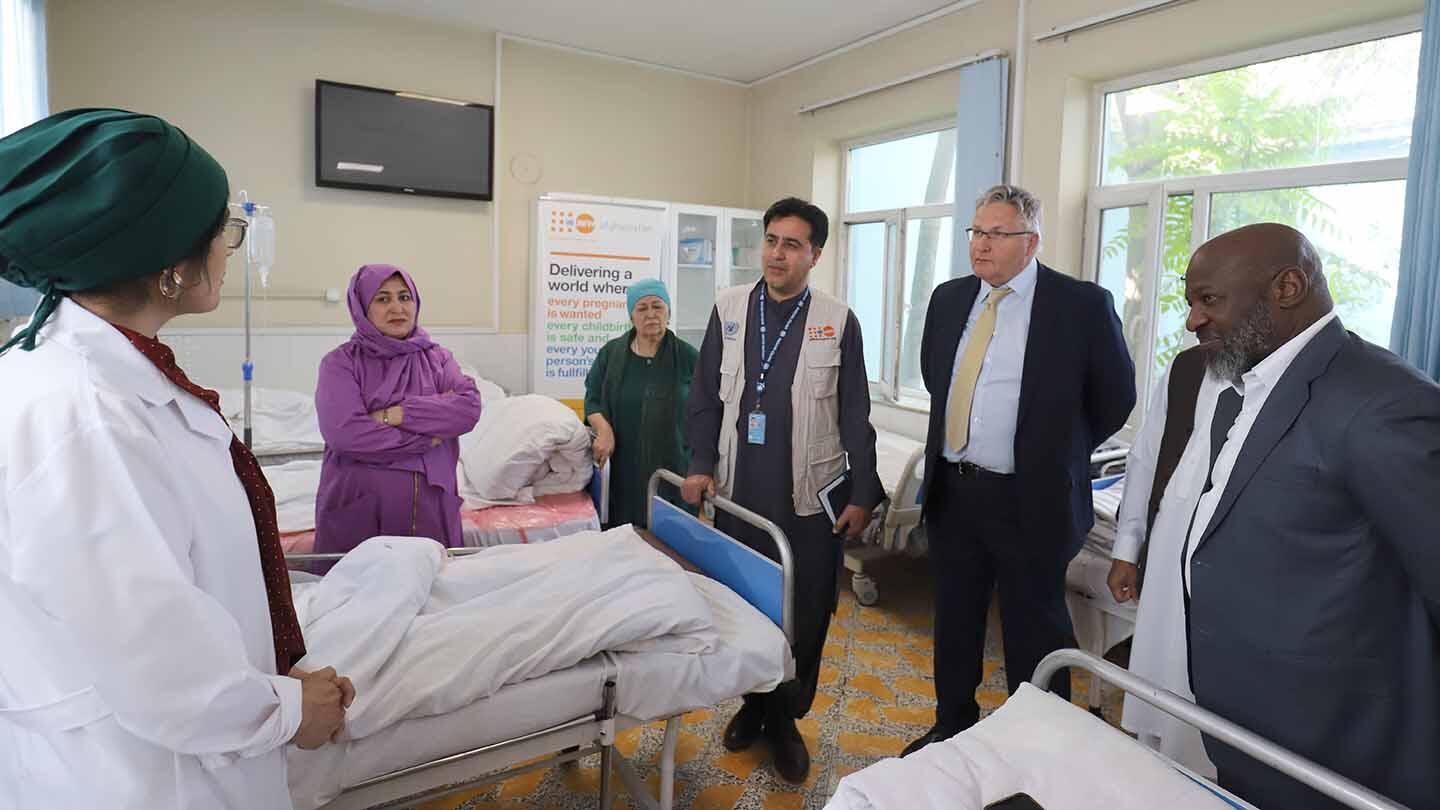23 May is the International Day to End Obstetric Fistula - one of the most serious and tragic childbirth injuries that can be prevented and treated.
Kabul, Afghanistan – Farida, a 30-year-old mother from Faryab Province, endured years of pain and stigma after a traumatic childbirth left her with an obstetric fistula. The condition, which caused chronic incontinence, led to isolation and stigma from her family, especially from her once-supportive husband. The emotional toll pushed Farida into deep depression.
Later, Farida learned about the Fistula Ward at Malalai Maternity Hospital in Kabul, supported by UNFPA and managed by the Afghan Family Guidance Association. She persuaded her husband to take her there, where she underwent surgery and received comprehensive care.
“My colleagues and I screened Farida and immediately admitted her for surgery,” said Dr. Homa Mangal, Chief of the Fistula Ward. “She was feeling much better and stayed with us for three weeks after the surgery.”
However, the journey home to her remote village proved treacherous. Farida had to ride a donkey for the final leg of the trip. She fell, which reversed her recovery and reopened the fistula. With no money for immediate treatment, she suffered for two more years.
In the spring of 2025, Farida contacted Dr. Mangal again, desperate for help. She returned to Malalai Maternity Hospital for a second surgery. This time, she received not only medical treatment but also health and hygiene counselling. She left the hospital fully healed.
Obstetric fistula, often caused by prolonged and obstructed labour, affects up to 42,000 women in Afghanistan—many of them young women living in hard-to-reach areas without access to timely care. The stigma associated with the condition leads to abandonment and lifelong trauma.
“Thanks to a simple, low-cost fistula surgery, fistula patients have been given a second chance at life. It restores health and dignity to women who have suffered in silence far too long,” said Andrew Saberton, UNFPA Deputy Executive Director for Management, during his recent visit to the Malalai Maternity Hospital.
Aside from the physical injury it brings, obstetric fistula also causes significant psychological consequences for women, including depression, social isolation, and feelings of shame. Women may be blamed by their communities, leading to stigmatization and rejection. The constant leakage of urine or feces, nerve damage causing difficulty walking, and the potential for infection or kidney failure contribute to a diminished quality of life and can lead to suicidal thoughts.
This is why UNFPA Asia-Pacific Director Pio Smith emphasized the importance of not just the physical recovery but also psychosocial support for fistula survivors. “Fistula survivors not only endure physical pain and discomfort, but also face deep social stigma and isolation. That is why it is critical to ensure comprehensive care - especially psychosocial support - to help them heal and reclaim their lives,” he said.
Dr Mangal adds: “Each day we operate on one to two patients who are struggling with fistula. We are proud to care for women like Farida—those who not only need treatment but also compassion and counselling.”
UNFPA supports three fistula centres in Afghanistan—in Kabul, Herat, and Nangarhar provinces—providing surgery, equipment, referral services, and training for health workers. Malalai Maternity Hospital in Kabul remains the national referral hub. In 2024 alone, it treated 200 women suffering from this preventable condition.


